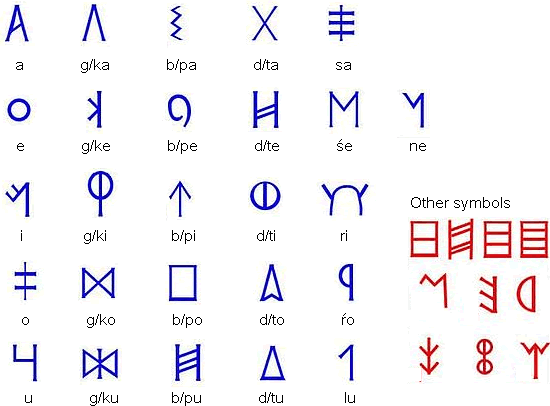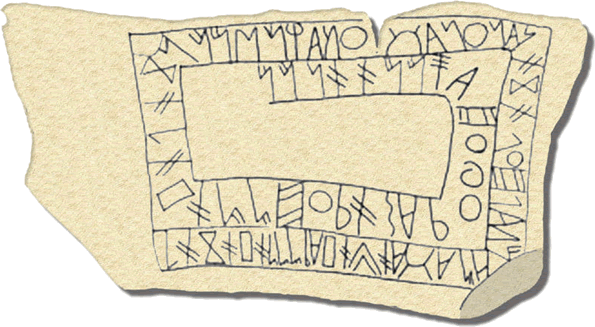Tartessian is an extinct language that was spoken in the southwest of the Iberian Peninsula, until about the 5th century BC. This area is made up of the Algarve and southern Alentejo regions of Portugal, and southern Extremadura and western Andalusia in Spain. The name Tartessian comes from Tartessos, a city that once stood at mouth of the Guadalquivir River in Andalusia.
Some linguists, such as John T. Koch, argue that Tartessian was a Celtic language. However, this idea is rejected by other linguists. While Tartessian may have contained some Celtic elements, it is thought that they were borrowed, and that the language was an isolate, or related to the extinct Iberian language, and/or to Basque.
Tartessian is known from 95 inscriptions dating from the 7th-5th century BC (Late Bronze Age and Early Iron Age) in an alphabet known as the Southwestern Script. It is also called the Tartessian Script, the Southwest Paleohispanic script or the South Lusitanian Script. It is partly alphabetic and partly syllabic, and is thought to have developed from the Phoenician alphabet, with possible influences from the Greek alphabet.

Based on information from Rodríguez Ramos, Jesús (2000): «La lectura de las inscripciones sudlusitano-tartesias»

Fonte Velha (Bensafrim, Lagos) [source]
Information about Tartessian and the Southwestern Script
https://en.wikipedia.org/wiki/Tartessian_language
/
https://www.historyireland.com/tartessian-europes-newest-and-oldest-celtic-language/
https://www.academia.edu/7649315/Some_observations_on_the_classification_of_Tartessian_as_a_Celtic_language
https://en.wikipedia.org/wiki/Southwest_Paleohispanic_script
https://academic-accelerator.com/encyclopedia/southwest-paleohispanic-script
Adaizan, Ainu, Basque, Burushaski, Candoshi-Shapra, Chitimacha, Eskayan, Hadza, Haida, Karuk, Kawésqar, Keres, Kuot, Kusunda, Kutenai, Natchez, Nihali, Nivkh, Páez, Purepecha, Sandawe, Seri, Sumerian, Tartessian, Ticuna, Tiwi, Tonkawa, Tunica, Urarina, Waorani, Warao, Wardaman, Washo, Yaghan, Yele, Yuchi/Euchee, Zuni
Page last modified: 27.01.24
[top]
You can support this site by Buying Me A Coffee, and if you like what you see on this page, you can use the buttons below to share it with people you know.

If you like this site and find it useful, you can support it by making a donation via PayPal or Patreon, or by contributing in other ways. Omniglot is how I make my living.
Note: all links on this site to Amazon.com, Amazon.co.uk
and Amazon.fr
are affiliate links. This means I earn a commission if you click on any of them and buy something. So by clicking on these links you can help to support this site.
[top]